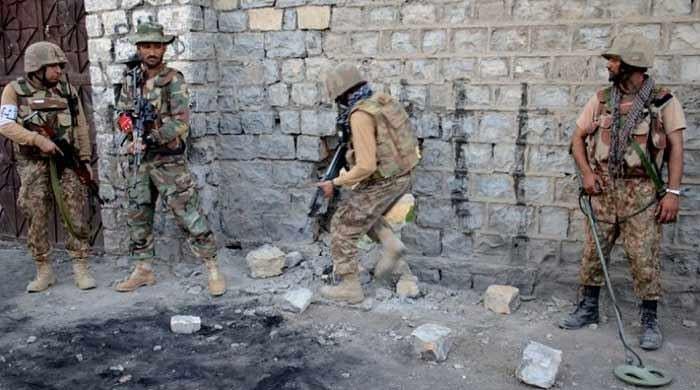
Intelligence-Based Operation in Bannu: Two Terrorists Neutralized
In a significant development in the fight against terrorism in Pakistan, security forces successfully neutralized two terrorists associated with the Fitna al-Khawarij group in an intelligence-based operation (IBO) in the Mughal Kot area of Bannu district, Khyber Pakhtunkhwa. This operation highlights the ongoing commitment of the Pakistani military and law enforcement agencies to combat terrorism and ensure the safety and security of its citizens.
The Operation: A Strategic Approach
The operation, which took place recently, was a result of meticulous intelligence gathering and planning by security agencies. The Bannu district, located in Khyber Pakhtunkhwa province, has been historically significant in the context of security operations, especially given its proximity to areas known for militant activity. The intelligence-based approach allows security forces to target specific threats while minimizing risks to civilians and collateral damage.
Understanding Fitna al-Khawarij
Fitna al-Khawarij is a terrorist group that has gained notoriety for its extremist ideologies and violent activities. This group, like others, poses a threat not only to national security but also to the broader regional stability. Their motivations often stem from a distorted interpretation of religious texts, leading to violent acts justified through radical beliefs.
The neutralization of two members of this group is a significant achievement for law enforcement agencies, as it disrupts their operational capabilities and sends a strong message to other potential militants. This operation is indicative of the larger efforts being made to combat radicalism and restore peace in the region.
Implications of the Operation
The successful operation in Bannu has several implications:
1. Enhanced Security: The elimination of these terrorists contributes to the overall security of the region. It reassures local communities that the government is taking proactive measures to protect them from extremist threats.
2. Deterrent Effect: Such operations serve as a deterrent to other potential terrorists. Knowing that security forces are actively pursuing militants can discourage individuals from joining extremist groups.
3. Community Confidence: Successful operations can help rebuild trust between the communities and law enforcement agencies. When citizens feel safe and see that authorities are taking action against terrorism, it fosters a sense of community security.
4. International Relations: Pakistan’s efforts in combating terrorism can also enhance its standing in the international community, demonstrating its commitment to fighting global terrorism and promoting stability in the region.
Challenges Ahead
Despite this success, challenges remain in the fight against terrorism. The landscape of terrorism is ever-evolving, with groups constantly adapting their tactics and strategies. Continued vigilance and intelligence-gathering efforts are essential to stay ahead of these threats.
Additionally, addressing the root causes of extremism, such as poverty, lack of education, and social injustice, is crucial in preventing the rise of new militant groups. Collaboration between government, civil society, and international partners will be key in creating a comprehensive strategy against terrorism.
Conclusion
The recent intelligence-based operation in Bannu, which resulted in the neutralization of two terrorists linked to Fitna al-Khawarij, underscores the ongoing commitment of Pakistan's security forces to combat terrorism. While this operation is a significant step forward, it is essential to remain vigilant and address the underlying issues that contribute to extremism. By doing so, Pakistan can not only ensure the safety of its citizens but also contribute to regional stability and peace.
---
FAQs
1. What is an intelligence-based operation (IBO)?
An intelligence-based operation (IBO) is a strategic military or law enforcement initiative that relies on gathered intelligence to target specific threats, often resulting in more effective and safer operations.
2. Who are Fitna al-Khawarij?
Fitna al-Khawarij is a terrorist group known for its extremist ideologies and violent actions. They often justify their acts through a distorted interpretation of religious texts.
3. Why is Bannu significant in the context of security operations?
Bannu is significant due to its historical ties to militant activity and its location in Khyber Pakhtunkhwa, a region that has faced various security challenges.
4. What are the implications of neutralizing terrorists in operations like this?
Neutralizing terrorists disrupts their operational capabilities, enhances local security, serves as a deterrent to potential militants, and can help rebuild trust between communities and law enforcement.
5. What challenges remain in combating terrorism in Pakistan?
Challenges include the evolving nature of terrorist tactics, the need for continued intelligence efforts, and addressing the root causes of extremism such as poverty and lack of education.
Tags
National
